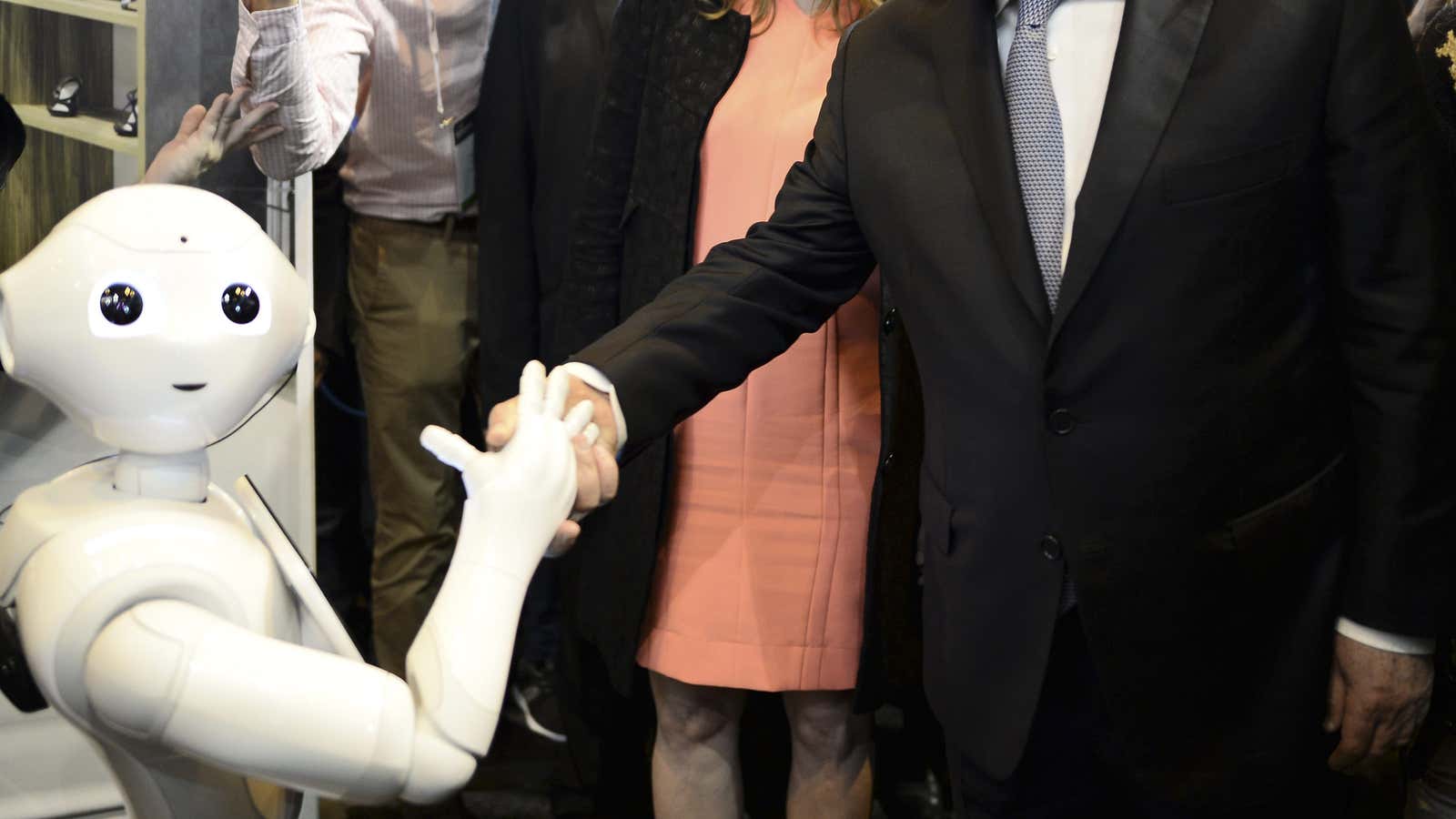The drumbeat of science, technology, engineering, and math has picked up tempo, but a crisis of culture has emerged from its cadence. As we embark ever more aggressively on the path to master machines, we are forgetting the very foundations of what it means to be human.
As we seek to optimize every process, collect more data, and curate more information, we forget that information is not the same as knowledge, and knowledge not the same as wisdom. As technologists seek to extend the limits of life, do they even remember why?
Science, to be certain, is beautiful and important in contextualizing our very existence. Scientific inquisition unlocks the very truths of our universe and where we fit within its vastness, and the value of STEM degrees is without question. But as we race toward the goal of being ever more technical, we ought to simultaneously consider what it means to be more human. We ought not to fear technology, but fear our susceptibility to losing our humanity.
The most important jobs of the future will be more human in scope, not less. The tasks most ripe for automation are rote and scripted ones. But none of this is new. Machines have long been optimizing processes for humans, enabling us to focus on the less routine, more unscripted tasks that comprise our jobs. While literacy with data and technology is undoubtedly useful, what is also valuable are the skills to translate machine information to the human world. These skills are overlooked as “soft,” but they’re exactly what grease the wheels in productive organizations.
While we learn to measure and manage data, we also must re-learn how to be human. As we learn to write code, we might also learn to write poetry. In the wake of Google memos that question the tenacity of female engineers and from the rubble of Uber’s rampant discriminatory practices, we must unearth the importance of empathy. If we want to make ourselves automation-proof, we must reconsider the value of communication, collaboration, and unbridled creativity.
Here are four ways to replace your mechanized actions with human ones.
Read about the past
Literary fiction and historical non-fiction can transport us into another time and place and force us to acknowledge a world no longer our own. Those frightened by our changing world can be heartened by its repetitiousness, and those charging ahead can gain direction by pocketing the lessons of past mistakes. We can admire the period details and humor of Jane Austen or immerse ourselves in the guilt and torment of a character by Fyodor Dostoevsky. We can recall our own great fortune by delving into Charles Dickens, or experience the incisive commentary of contemporary fiction that forces us to question our own perspective.
Make something with your hands
Use your hands, not just your mind. Get into a state of flow by turning on a classic jazz record and putting paint to canvas. Buy a notepad and a set of charcoal pencils, and go to the park without your cell phone to draw what you see around you. Take a night course in woodworking or pottery throwing, where you can morph raw elements into forms and feel the emotional value of accomplishing something from start to finish. To escape my laptop, I endeavored to build a guitar from scratch, a task that took immense focus and over 100 hours behind a set of chisels and saws. The result is an intimacy of understanding and the great pleasure of having built a musical instrument. Each note is a reminder of that building process, something I shared with my father.
Learn to listen
Today we conflate “tweet storms,” diatribes packaged into 140-character emotional outbursts, with conversations. We scroll through The Skimm, so we can respond, “Yeah, I read about that.” But reading about something is not the same as reading something. So consider joining a local book club. Not only will you meet other people who hail from other walks of life, but you’ll also be forced to consider the interpretations and opinions of others. As you plow through each month’s book, consider it a tour beyond the horizon of your own comforts. Force yourself to listen rather than preach and enter each meeting with an open mind to hear, rather than argue.
Talk to a stranger in real life
Sometimes the simplest smile can unlock a hello or a conversation. An unscripted moment of vulnerability with another human can challenge your biases. When we sit in silence, we judge, and we presume. We learn to become open-minded because we recognize our own fallibility in reading others. Simple interactions do not need to lead to LinkedIn additions. For example, once on a firefly-lit evening in western Pennsylvania, I heard a call from a trailer porch. “I’m not gonna bite you, boy!” A 90-something World War II veteran ushered me over to sit down, and I did. He reminisced about trading cigarettes for haircuts in Italy. He was stranded in Europe longer than other soldiers because, in great fortune, he’d not been injured or lost a family member. Our conversation turned to the wars in Afghanistan and Iraq, military service and politics, but rather than hastily flicking my thumb, scrolling past his beliefs, on the porch I nodded and listened.
As we race further into the digital world, let us take a step back to consider how we improve ourselves. There’s as much value to up-skilling in our humanity as there is in learning to code. We need not trade one for the other, but must rather consider their mutual necessity. Take a class in Python—but then pick up a new copy of Plutarch. Write Javascript, but read Joyce. Otherwise we’ll all just be living in Orwell’s world.
